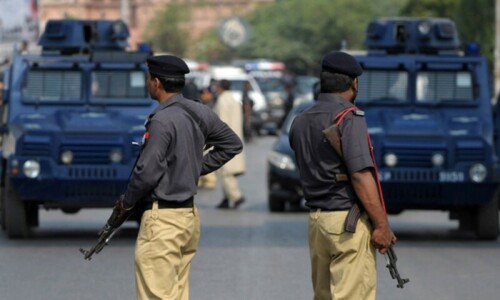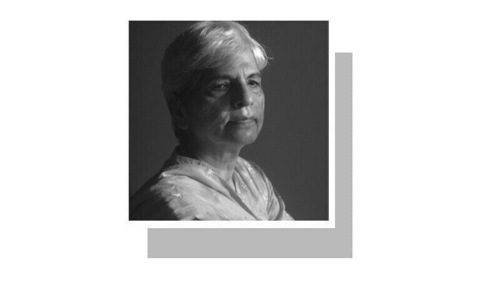THE recent violent clash at the Quaid-i-Azam University (QAU) in Islamabad escalated into chaos as around 300 students of an ethnic community launched an attack on another group belonging to another community in Hostel 7, leaving 25 injured. What started as a personal dispute inv-olving a member of a so-called ‘student council’, quickly spiralled into a violent and large-scale assault.
Students were pulled out of their rooms, beaten with sticks wrapped in iron, and left with severe injuries, including fractures as well as head wounds. Several days have passed, and, shockingly, no arrests have been made. The university administration has remained silent, and law-enforcement agencies have failed to act. Even more disturbing, those involved in the attack are ‘celebrating’ on campus, mocking all the injured and escalating tensions.
The vulnerable students, who faced violence and humiliation, are now on the edge, with talk of revenge brewing. The lack of response from both the university administration and state authorities is as alarming as it is dangerous. How long before this boils over again? How many more students must suffer before the situation is taken seriously?
This incident is a glaring reminder of the deep ethnic divisions that exist in Pakistan. The rivalry between student groups mirrors broader tensions within the country. The fact that such a violent attack could occur within the walls of a prestigious institution, with no immediate consequ-
ences, speaks volumes about the situation. Why is the state silent? Why is the focus elsewhere while students fear for their lives?
If the current situation is not addressed properly, we could see even more violence on the campus, with potentially devastating outcomes. Who will be responsible if this conflict spirals out of control?
Public outrage has been widespread, but media coverage has been disappointingly thin. But we must remember, ignoring such a volatile situation will not cool things down. There is a growing sentiment that if the authorities do not step up, the risk of further clashes is inevitable.
This event highlights the urgent need for universities across the country to put in place stronger safety protocols and conflict resolution mechanisms. Law-enforcement must be more responsive in such situations, and those responsible for this attack must face justice. The government, along with other institutions, must step in and ensure that the safety and rights of students are protected, regardless of their ethnic background. Ethnic violence has no place in our educational institutions, or any-where. If we continue to ignore this issue, we risk further dividing our society.
Now is the time for action, not silence.
Muhammad Sajjad Haider
Islamabad
Published in Dawn, October 30th, 2024













































